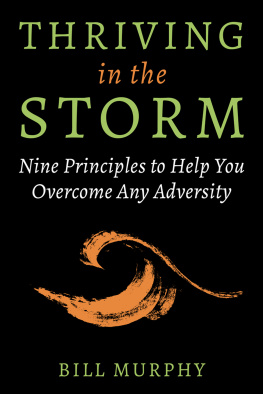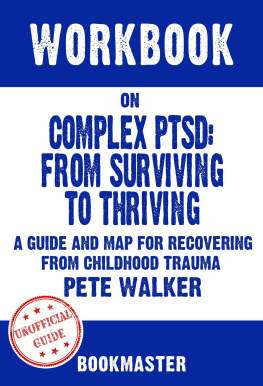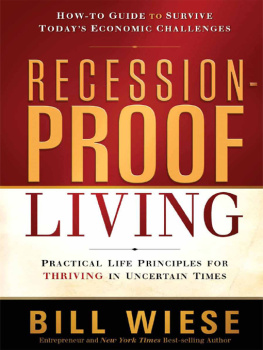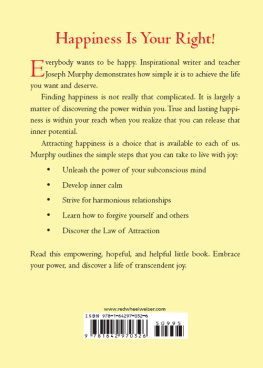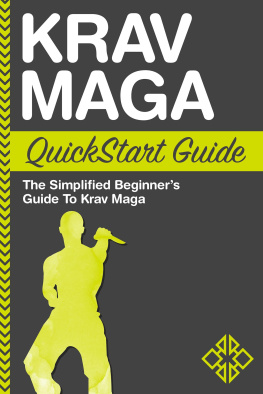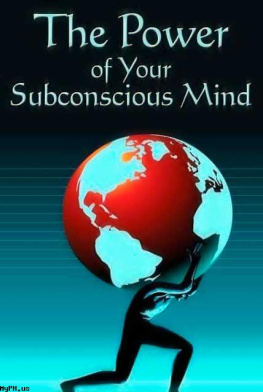


Copyright 2023 by Bill Murphy
First Skyhorse Publishing edition published 2022
All rights reserved. No part of this book may be reproduced in any manner without the express written consent of the publisher, except in the case of brief excerpts in critical reviews or articles. All inquiries should be addressed to Skyhorse Publishing, 307 West 36th Street, 11th Floor, New York, NY 10018.
Skyhorse Publishing books may be purchased in bulk at special discounts for sales promotion, corporate gifts, fundraising, or educational purposes. Special editions can also be created to specifications. For details, contact the Special Sales Department, Skyhorse Publishing, 307 West 36th Street, 11th Floor, New York, NY 10018 or .
Skyhorse and Skyhorse Publishing are registered trademarks of Skyhorse Publishing, Inc., a Delaware corporation.
Visit our website at www.skyhorsepublishing.com.
10 9 8 7 6 5 4 3 2 1
Library of Congress Cataloging-in-Publication Data is available on file.
Cover design by David Ter-Avanesyan
Print ISBN: 978-1-5107-7500-8
Ebook ISBN: 978-1-5107-7510-7
Printed in the United States of America
Introduction
Ever since I was a kid, anytime someone told me I couldnt do something, I wanted to prove them wrong, and that mentality has stuck with me my entire life. Its how I found myself in Florida in 2019 about to participate in my first Ironman.
Around 3,000 people showed up for the event. Typically, about 500 of those 3,000 either get a DNQ (did not qualify by finishing in under 17 hours) or DNF (did not finish). I had set a goal to finish the race in under 14 hours, but it was really all about finishing, period. I was not going to end up a DNQ or a DNF, but when I showed up for orientation, thats when the self-doubt started to creep in.
I had run the Boston Marathon four times, but the Ironman was a different beasta 2.4-mile swim and 112 miles on the bike followed by a full 26.2-mile marathon at the end. When I started training six months earlier, I couldnt swim two laps in the pool without gasping for air, and almost fell over when trying to test ride a new bike. I had come a long way, but I still didnt feel like I belonged there. Everyone around me looked like professional athletes. They were talking about the mechanics of their bike, the gait of their stride, and the max heart rate they needed to be at during the race. I didnt know what the hell any of that meant. It was intimidating. I was never the biggest, fastest, or strongest. I always had to work harder than everyone else to earn my spot as a kid, and that never changed when I got older. Those are feelings we all experience, but what most people dont realize is that you cant wait for that feeling to go away before you get started. You just have to do it and will your way through with grit and determination, so thats what I did.
Id love to say that I breezed through my first Ironman and blew away my target time because of my preparation, but that didnt happen. I was freezing when I got out of the water after the swim, I got two flat tires on the bike, and my legs were rubber when I started the marathon, but I remembered what my coach had told me. I trusted that my nutrition and training would pay off, and I crossed the finish line in 13 hours and 56 minutesjust under my 14-hour goal. Thats when those feelings of doubt finally disappeared. Just like after every race, I finally felt like I belonged with this group of athletes.
I accomplished a lot in 2019. In addition to finishing my first Ironman, I earned my black belt in Krav Maga and completed my fourth Boston Marathon. Next, I was going to turn my attention to finishing the year as my companys number-one mortgage originator in sales. On the surface, life seemed great. I should have been on top of the world, and to an outsider, it looked like I had it made, but something was very, very wrong. It had been bubbling under the surface my entire life, and I was trying to run away from it, but wasnt able to run any longer.
I had read an ESPN article about NBA players discussing their childhood depression and how it was nothing to be ashamed of. Something about that article resonated with me. I was a guy who grew up thinking men didnt get depressed. That was for the weak. I called those guys soft because I thought that was something to be embarrassed about. But after reading that article, I cried. And Ive only cried a handful of times in my life. I was starting to recognize the patterns in my own life. Oh my God! Am I depressed? Is that whats happening to me? I had to dive in and learn more.
Ive always been a self-help junkie. I got my masters in psychology and wanted to be a counselor when I was younger, so its been an interest of mine for a long time. A lot of people like to crank up the tunes and rock out to music when they train, but I listen to audiobooks, and almost always self-help. I had already listened to two of Terry Reals books, so when I was training for the Ironman, I started listening to I Dont Want to Talk About It: Overcoming the Secret Legacy of Male Depression. That book completely blew me away. It hit close to home as nothing else ever had.
Before the Ironman, I booked a counseling session with Terry. He was located in Boston, so it was easy to make arrangements. I went back for a second session with my wife and thats when it got heavy. We discussed areas of my past that I didnt want to talk aboutthings that I had swept under the rug a long time ago. By the end of those sessions, Terry recommended that I check myself into a Psychological Counseling Services (PCS) facility in Arizona, and my wife was threatening divorce if I didnt go. It was a punch to the gut that I wasnt prepared for.
Ive always had anger issues. I would lose my temper. Id often say things at work or get mad at my kids and then beat myself up over it the next day. Id ruminate and wonder what the hell was wrong with me. My relationship with my wife wasnt always great, and there were times when I just didnt feel good. I would get down and I wouldnt know why, but I would just write it off as anxiety or me being intense and a go-getter. I wanted to be better and knew that I could be bettera better husband, father, and leader. But the reason they wanted me to go traced all the way back to my childhood.
My homelife growing up was not ideal. I knew that, but it was in the past. It had nothing to do with any of my current issues. At least thats what I thought, but nobody else saw it that way. The people in my life felt that I had to confront the past, and I didnt seem to have much choice, so two weeks after finishing the Ironman, I agreed to check myself into PCS. I had to go kicking and screaming, but I went.
The week was booked with about 65 hours of individual and group therapy sessions. It got intense. I did countless assessments, exercises, and assignments. One was called the trauma egg; a therapeutic exercise designed by Marilyn Murray, who was one of my therapists. It involved taking an inventory of all the traumatic moments in your life from birth right up until the present. Id blow past everything that happened in my childhood and try to focus on more recent events, but just like during my sessions with Terry, they kept redirecting me back to my childhood.
One of the psychologists at PCS was a triathlete as well, and he knew that I had just finished the Ironman, so he took me under his wing. He probably spent more time with me than he should have during our one-on-ones. When he saw the results of my ACE (Adverse Childhood Experiences) test, he told me, Given the abuse you went through as a child, you should be dead or in jail. You have a way of taking your issues and turning them into production.
Next page
